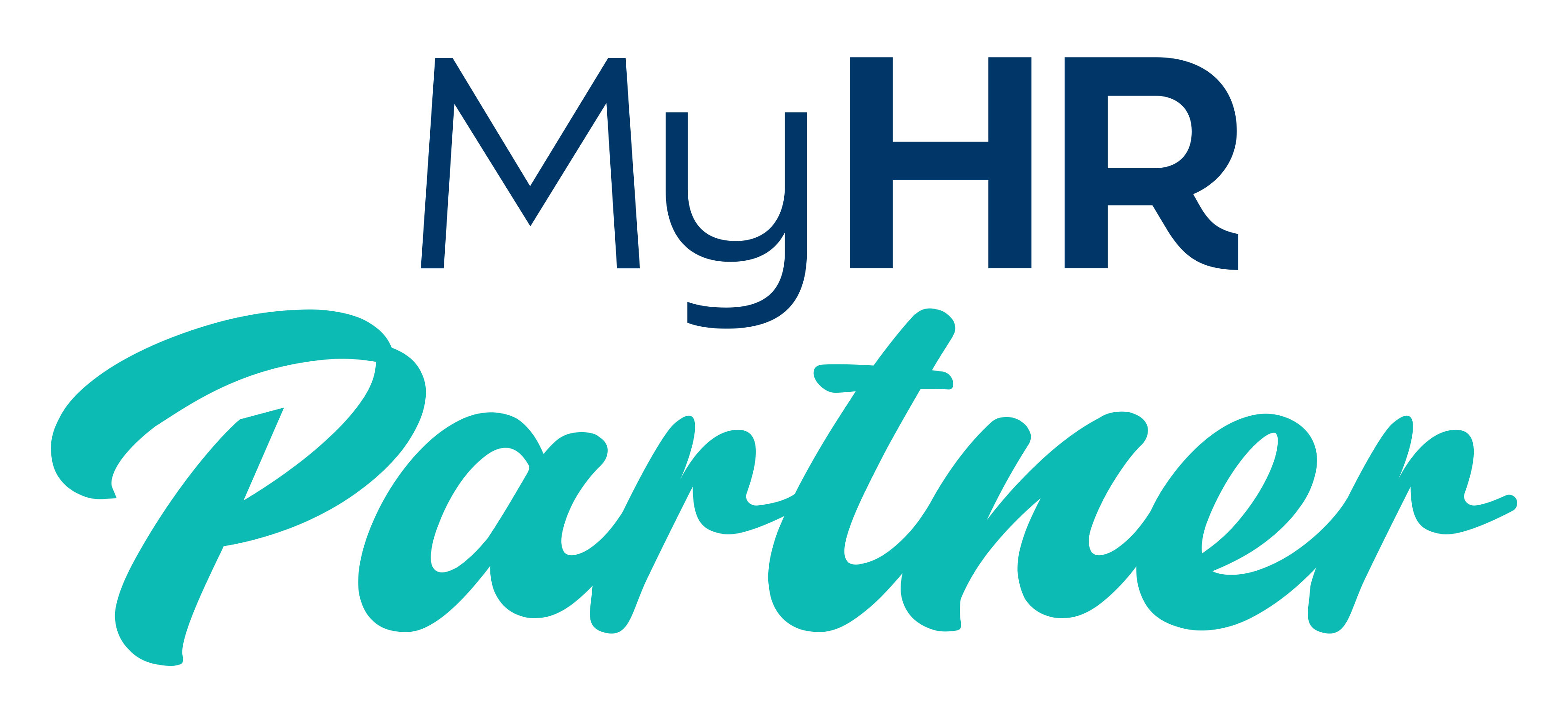Unlocking the Power of Human Resources: Welcome to Our Blog!
Discover HR updates, the latest trends, best practices, and innovative strategies shaping the world of Human Resources in Australia. From talent acquisition to employee engagement, we delve into the intricacies of HR management to empower organisations.
Let's navigate the dynamic landscape of HR together.

Podcast Episode 11: Unveiling the Power of Exit Interviews: A Business Improvement Tool
In the dynamic world of business, continuous improvement is one of the keys to success. Today, we explore a concept that might be unfamiliar to many small to medium-sized business owners – exit interviews. Often overlooked, these interviews can be a powerful tool for gaining valuable insights and fostering positive changes within your organisation.
Understanding Exit Interviews:
An exit interview is a process where departing employees provide feedback on their experiences within the organisation. This feedback is gathered through a series of questions that cover various aspects of their employment, from workplace culture to specific conditions that influenced their decision to leave.
Why Conduct Exit Interviews?
Exit interviews serve as a goldmine of information for businesses seeking to enhance their operations. Whether an employee is leaving on good terms or not, their insights can reveal crucial aspects of your organisation that may need improvement. By understanding the reasons behind an employee’s departure, businesses can implement positive changes and create a more appealing workplace.
Methods of Conducting Exit Interviews:
Exit interviews can take various forms, offering flexibility to suit the preferences of both the employer and the departing employee. These methods include surveys, one-on-one interviews, or a combination of both. Additionally, some businesses opt for external professionals to conduct these interviews, ensuring a more open and honest conversation.
When to Conduct Exit Interviews:
Ideally, businesses should conduct exit interviews before the employee’s departure, allowing the opportunity to address concerns and potentially retain valuable talent. However, it’s crucial to respect the departing employee’s comfort level, as some may prefer to provide feedback after leaving and sometimes prefer not doing that in person.
Constructing Effective Exit Interviews:
Crafting meaningful exit interviews involves thoughtful consideration of the questions asked. While there are standard questions, it’s essential to tailor them to your business’s unique needs. A well-constructed exit interview can delve into why the employee is leaving, areas where the business excels, and areas needing improvement.
Turning Feedback into Positive Change:
Negative feedback, though initially challenging to receive, can be a catalyst for positive change. Businesses should view this feedback as an opportunity to identify areas for improvement, whether related to management, workplace conditions, or overall culture. An impartial HR professional can play a crucial role in interpreting and addressing this feedback.
Opportunity for Retention:
Exit interviews can also serve as a last-minute opportunity for businesses to retain valuable employees. By understanding the reasons behind an employee’s departure, employers can explore counteroffers or address concerns, potentially preventing the loss of talent.
Expanding Beyond Exit Interviews:
Beyond departures, businesses can also consider conducting “stay interviews” or surveys with existing employees. This proactive approach allows organisations to gather feedback from current staff, providing insights into potential areas for improvement before issues escalate.
Exit interviews are a valuable yet often overlooked tool for businesses looking to enhance their operations and foster a positive workplace culture. By embracing the insights gained from these interviews, organisations can make informed decisions that contribute to long-term success. If you’re ready to explore the benefits of exit interviews for your business, consider reaching out to discuss how we can help you. Your employees’ departing insights could be the key to unlocking positive changes and driving your business forward.
Our Latest Blog Post

Podcast Episode 11: Unveiling the Power of Exit Interviews: A Business Improvement Tool
In the dynamic world of business, continuous improvement is one of the keys to success. Today, we explore a concept that might be unfamiliar to many small to medium-sized business owners – exit interviews. Often overlooked, these interviews can be a powerful tool for gaining valuable insights and fostering positive changes within your organisation.
Understanding Exit Interviews:
An exit interview is a process where departing employees provide feedback on their experiences within the organisation. This feedback is gathered through a series of questions that cover various aspects of their employment, from workplace culture to specific conditions that influenced their decision to leave.
Why Conduct Exit Interviews?
Exit interviews serve as a goldmine of information for businesses seeking to enhance their operations. Whether an employee is leaving on good terms or not, their insights can reveal crucial aspects of your organisation that may need improvement. By understanding the reasons behind an employee’s departure, businesses can implement positive changes and create a more appealing workplace.
Methods of Conducting Exit Interviews:
Exit interviews can take various forms, offering flexibility to suit the preferences of both the employer and the departing employee. These methods include surveys, one-on-one interviews, or a combination of both. Additionally, some businesses opt for external professionals to conduct these interviews, ensuring a more open and honest conversation.
When to Conduct Exit Interviews:
Ideally, businesses should conduct exit interviews before the employee’s departure, allowing the opportunity to address concerns and potentially retain valuable talent. However, it’s crucial to respect the departing employee’s comfort level, as some may prefer to provide feedback after leaving and sometimes prefer not doing that in person.
Constructing Effective Exit Interviews:
Crafting meaningful exit interviews involves thoughtful consideration of the questions asked. While there are standard questions, it’s essential to tailor them to your business’s unique needs. A well-constructed exit interview can delve into why the employee is leaving, areas where the business excels, and areas needing improvement.
Turning Feedback into Positive Change:
Negative feedback, though initially challenging to receive, can be a catalyst for positive change. Businesses should view this feedback as an opportunity to identify areas for improvement, whether related to management, workplace conditions, or overall culture. An impartial HR professional can play a crucial role in interpreting and addressing this feedback.
Opportunity for Retention:
Exit interviews can also serve as a last-minute opportunity for businesses to retain valuable employees. By understanding the reasons behind an employee’s departure, employers can explore counteroffers or address concerns, potentially preventing the loss of talent.
Expanding Beyond Exit Interviews:
Beyond departures, businesses can also consider conducting “stay interviews” or surveys with existing employees. This proactive approach allows organisations to gather feedback from current staff, providing insights into potential areas for improvement before issues escalate.
Exit interviews are a valuable yet often overlooked tool for businesses looking to enhance their operations and foster a positive workplace culture. By embracing the insights gained from these interviews, organisations can make informed decisions that contribute to long-term success. If you’re ready to explore the benefits of exit interviews for your business, consider reaching out to discuss how we can help you. Your employees’ departing insights could be the key to unlocking positive changes and driving your business forward.
We provide HR advice and support. We have trusted partners to assist with any employment law issues
outside of our scope.
More info

Get HR Advice from our HR expert
Our Latest Blog Post

Podcast Episode 11: Unveiling the Power of Exit Interviews: A Business Improvement Tool
In the dynamic world of business, continuous improvement is one of the keys to success. Today, we explore a concept that might be unfamiliar to many small to medium-sized business owners – exit interviews. Often overlooked, these interviews can be a powerful tool for gaining valuable insights and fostering positive changes within your organisation.
Understanding Exit Interviews:
An exit interview is a process where departing employees provide feedback on their experiences within the organisation. This feedback is gathered through a series of questions that cover various aspects of their employment, from workplace culture to specific conditions that influenced their decision to leave.
Why Conduct Exit Interviews?
Exit interviews serve as a goldmine of information for businesses seeking to enhance their operations. Whether an employee is leaving on good terms or not, their insights can reveal crucial aspects of your organisation that may need improvement. By understanding the reasons behind an employee’s departure, businesses can implement positive changes and create a more appealing workplace.
Methods of Conducting Exit Interviews:
Exit interviews can take various forms, offering flexibility to suit the preferences of both the employer and the departing employee. These methods include surveys, one-on-one interviews, or a combination of both. Additionally, some businesses opt for external professionals to conduct these interviews, ensuring a more open and honest conversation.
When to Conduct Exit Interviews:
Ideally, businesses should conduct exit interviews before the employee’s departure, allowing the opportunity to address concerns and potentially retain valuable talent. However, it’s crucial to respect the departing employee’s comfort level, as some may prefer to provide feedback after leaving and sometimes prefer not doing that in person.
Constructing Effective Exit Interviews:
Crafting meaningful exit interviews involves thoughtful consideration of the questions asked. While there are standard questions, it’s essential to tailor them to your business’s unique needs. A well-constructed exit interview can delve into why the employee is leaving, areas where the business excels, and areas needing improvement.
Turning Feedback into Positive Change:
Negative feedback, though initially challenging to receive, can be a catalyst for positive change. Businesses should view this feedback as an opportunity to identify areas for improvement, whether related to management, workplace conditions, or overall culture. An impartial HR professional can play a crucial role in interpreting and addressing this feedback.
Opportunity for Retention:
Exit interviews can also serve as a last-minute opportunity for businesses to retain valuable employees. By understanding the reasons behind an employee’s departure, employers can explore counteroffers or address concerns, potentially preventing the loss of talent.
Expanding Beyond Exit Interviews:
Beyond departures, businesses can also consider conducting “stay interviews” or surveys with existing employees. This proactive approach allows organisations to gather feedback from current staff, providing insights into potential areas for improvement before issues escalate.
Exit interviews are a valuable yet often overlooked tool for businesses looking to enhance their operations and foster a positive workplace culture. By embracing the insights gained from these interviews, organisations can make informed decisions that contribute to long-term success. If you’re ready to explore the benefits of exit interviews for your business, consider reaching out to discuss how we can help you. Your employees’ departing insights could be the key to unlocking positive changes and driving your business forward.
We provide HR advice and support.
We have trusted partners to assist with
any employment law issues outside
of our scope.
More info
PO Box 1079
Coolangatta QLD 4225
ABN 30 644 527 015
Get HR Advice from our HR expert







